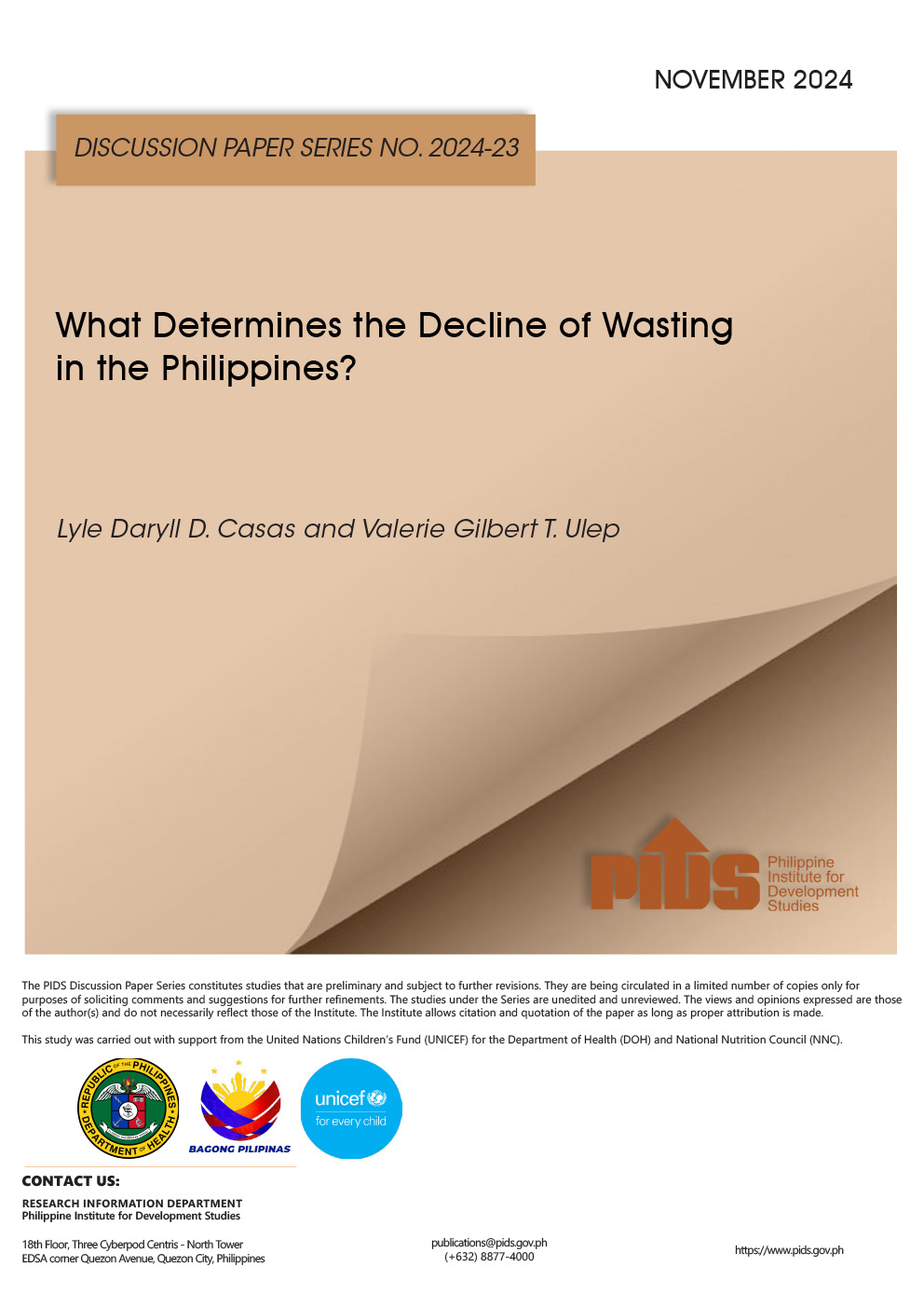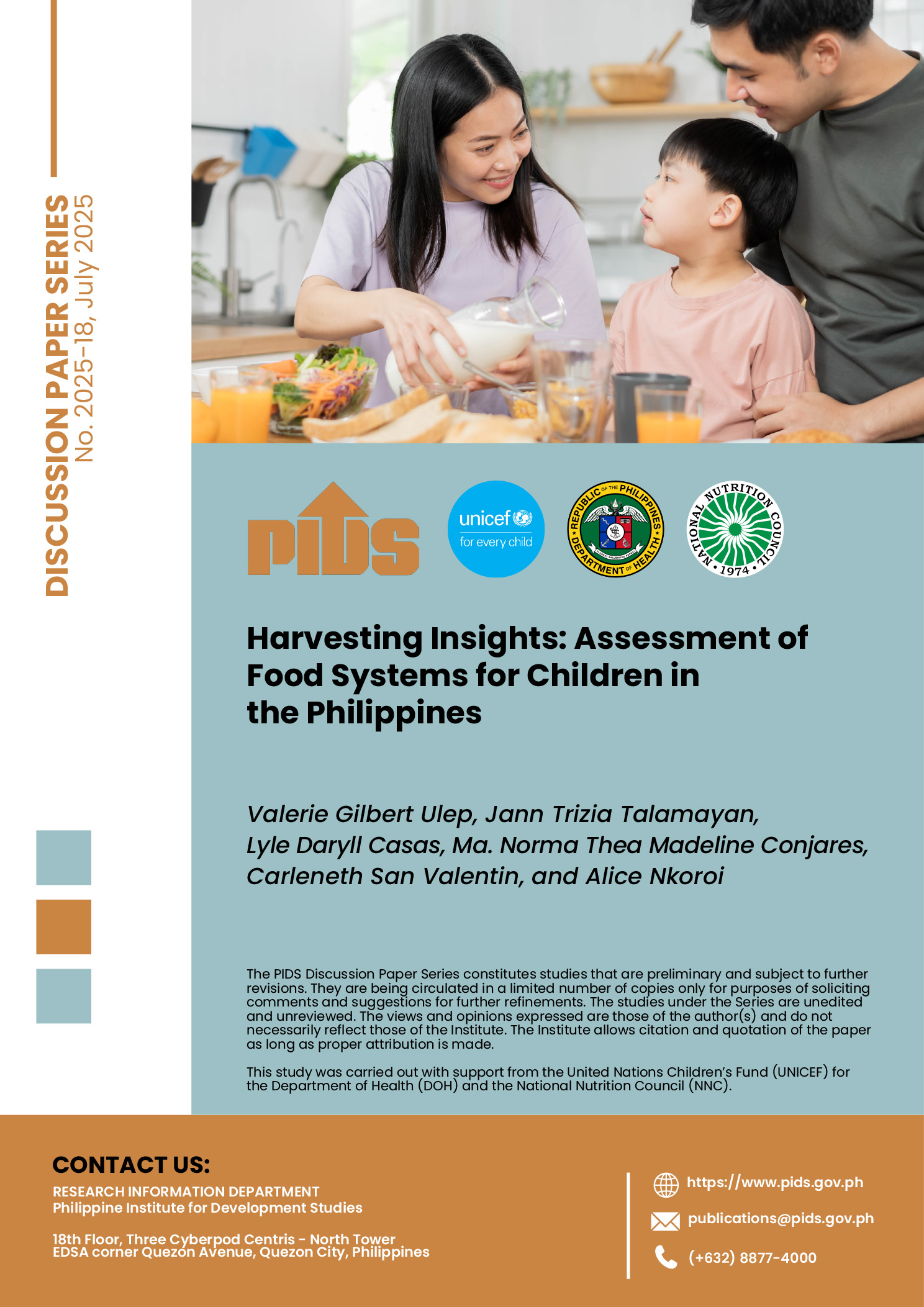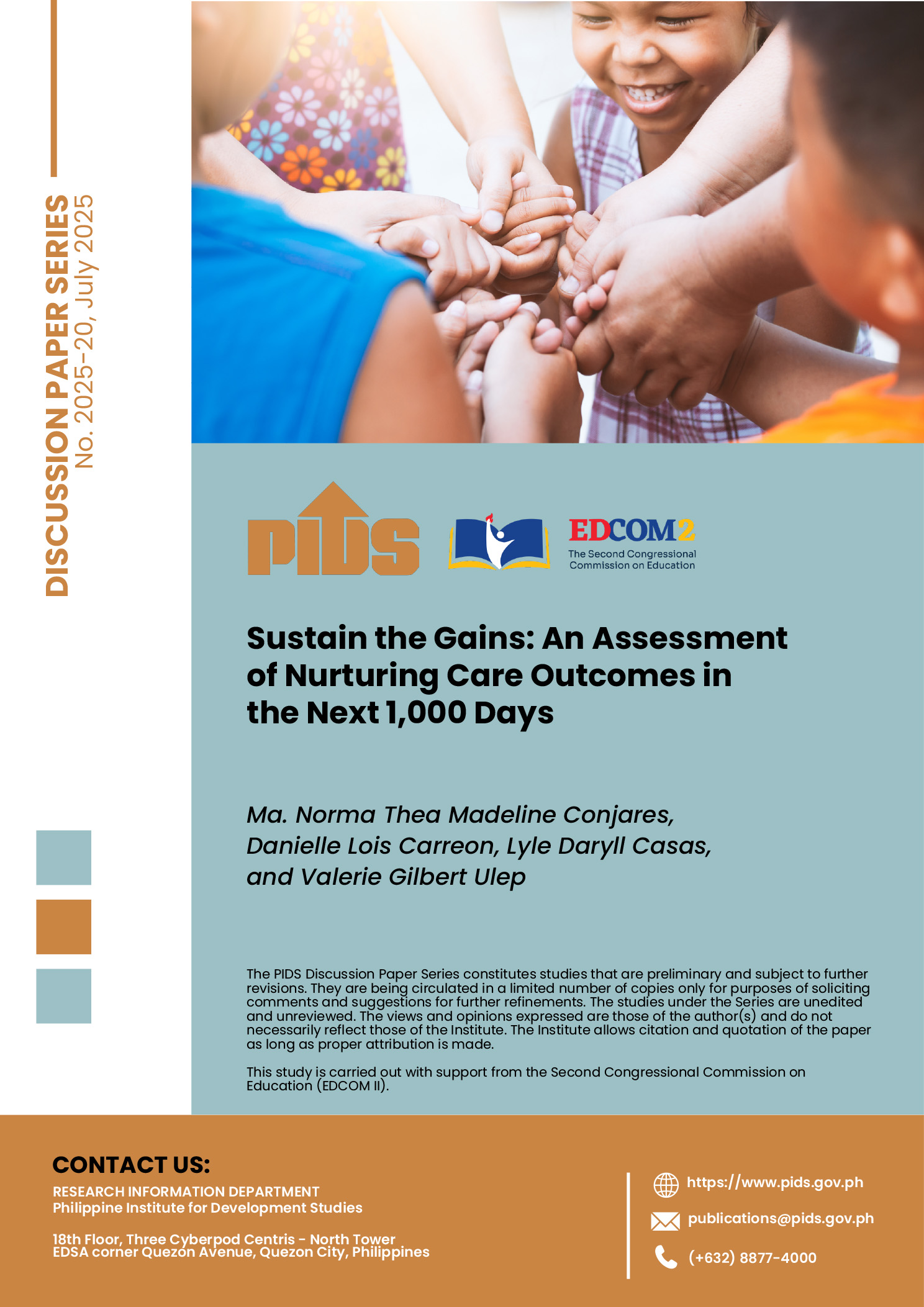This report comprises three papers. The first paper presents a comprehensive assessment of the Human Resources for Health (HRH) remuneration system in the Philippines. The current stock of HRH, their economic contribution, and the governance and financing mechanisms that support workforce management are examined. The scope and coverage of HRH-related policies are assessed, and the accessibility of welfare services available to healthcare workers is evaluated. Policy and implementation challenges affecting the delivery of these services are identified. To achieve these objectives, a mixed-methods approach is employed, which includes the analysis of multiple administrative datasets and both primary and secondary surveys.
The second paper explores policy options for promoting equitable remuneration in the context of ongoing health sector reforms, particularly the implementation of the Universal Health Care (UHC) Act. Potential budgetary costs of selected options are estimated, and lessons are drawn from other countries that have implemented similar reforms, such as changes in provider payment mechanisms, care integration, decentralization, and performance-based incentives aimed at improving service quality.
The third paper examines the extent to which local government units comply with the Magna Carta of Public Health Workers (MCPHW) over time. The influence of LGUs’ fiscal capacity on compliance levels is estimated using a fixed-effects regression model. For this analysis, administrative data from the Department of Health, a merged dataset on MCPHW implementation, and supplementary data from various government sources are utilized.
Comments on this paper are welcome within 60 days from the date of posting. Email publications@pids.gov.ph.













